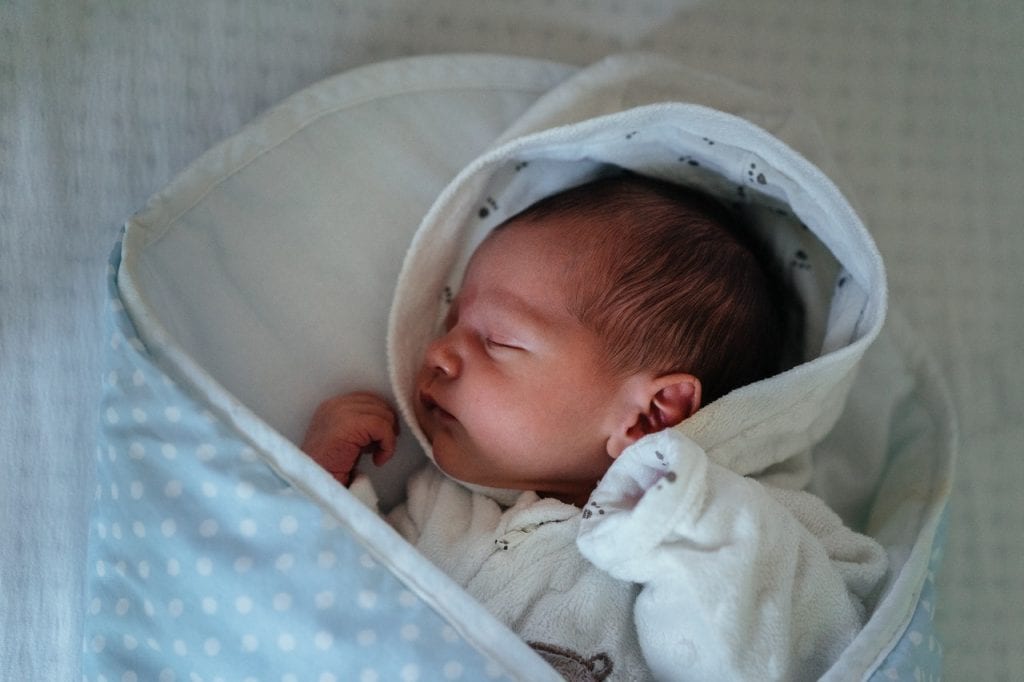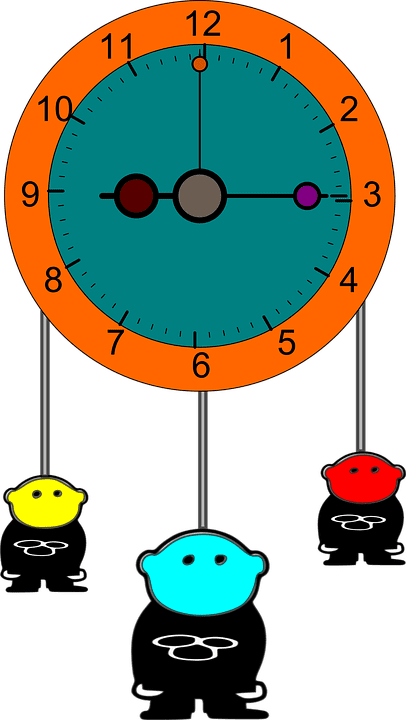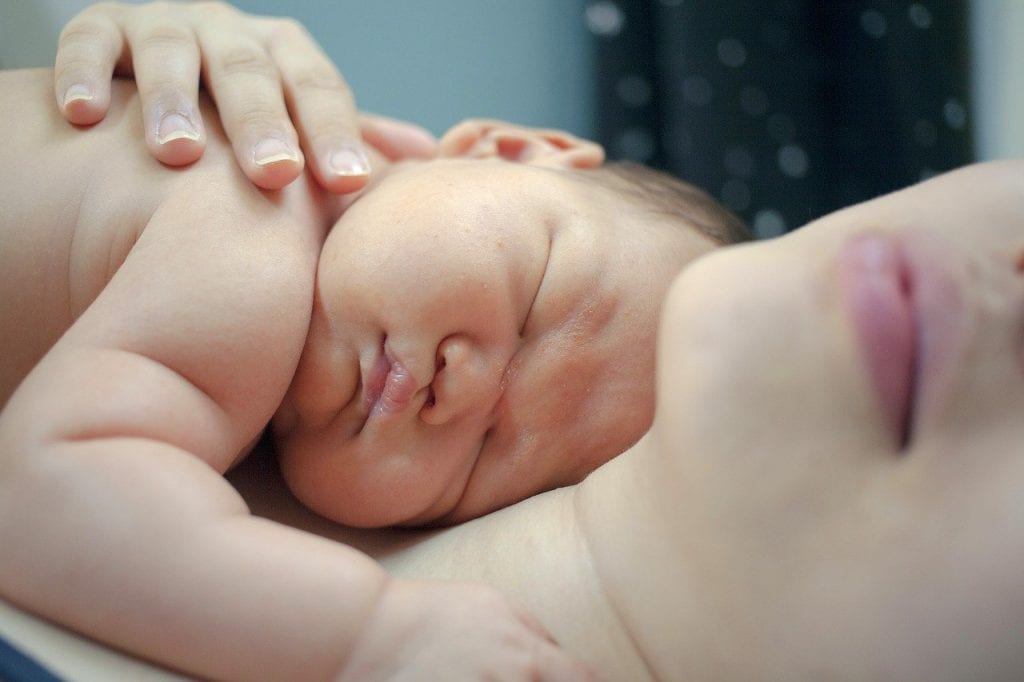When you bring a new baby home, everyone will tell you that they don’t sleep well. They’ll let you know that your baby will keep you up all night and that they’ll cry for no reason. But what if your child doesn’t seem to fall into that category? What if at 3 months of age your little one is already sleeping quite a bit? What does that mean for you and for your baby? Is waking babies from naps a good idea?

What Does A Lot Of Sleep Mean For A 3-Month-Old?
If your 3-month-old is sleeping 15 hours each day, it may seem like a lot; however, this is actually about the average amount of sleep they should be getting. At this age, your baby is going through a lot of changes and development. That means they need to get a lot of sleep in order for their body to take care of each of those things.
For most infants of this age, sleeping through the night starts to become more regular. In fact, they may sleep 10 or more hours at night, all the way through the night. This is about the time they start developing a regular schedule. The rest of the 15 hours of sleep that they get each day is interspersed in up to 5 naps. Naps for an infant of this age could be as short as an hour or as long as 3 hours at a stretch. These are also important for helping their growth and development.
Now, getting more than 15 hours of sleep at a time is not necessarily a bad thing either. The body causes you to sleep more when it needs to. So, if your little one is ill, they might sleep more so that their body can fight it off. If they are going through a growth spurt or if they are teething, these are also common reasons that they will sleep more. Some infants just need more sleep than others and may take more naps or may sleep longer during the night.

What To Do About 3 Month Old Sleeping A Lot
If your little one is regularly sleeping more than 15 hours per day or seems groggy and lethargic when they are awake, it’s a good idea to talk with their doctor. You can discuss how to care for a newborn baby‘s sleeping habits and find out more about why they might be following this pattern. They can also evaluate other habits and patterns to see if there is anything you should be concerned about or if your newborn is sleeping fine. Sleeping longer is not necessarily a bad thing.
If you’re concerned, tracking your newborn sleeping schedule is the first place to start. You may find that they seem to be sleeping a lot more than average, but they’re actually not. If you do find that they are sleeping more than average, you’ll have something to show to the doctor, which can jumpstart the process of taking care of whatever might be going on. Older babies will start to sleep less over time, but at 3 months, don’t be alarmed by long stretches of uninterrupted sleep.

Frequently Asked Questions
Why is my 3-month-old sleeping a lot?
If your 3 month old is sleeping a lot, there could be one of three different reasons for it. The first is that your little one is going to have a growth spurt. At any age, you’ll find children sleep more when they’re about to have another big growth spurt. Another reason is teething, which causes your little one to get agitated more frequently during the night, and when it’s over, they might suddenly start to sleep more. Finally, they might be sick. This is the one that you’re likely concerned about, and it is a possibility if you notice a lot more tiredness and sleeping.

Is it OK for my 3 month old to sleep a lot?
In general, it’s going to be just fine if your newborn is sleeping a lot. While it could be a sign that your little one is ill, it could also mean that they are going through normal teething or that they are going to grow a little more. These are typical situations, and even illness that causes excessive sleep may not be too serious. The most important thing is to talk with your child’s doctor and evaluate the other symptoms to find out why they are sleeping more than average.
Is my baby sleeping too much?
If your little one is sleeping approximately 10 hours per night plus taking naps that equal approximately 5 hours per day, they’re likely sleeping about the right amount. If you notice that your newborn is sleeping more than this, however, you should evaluate some of their other characteristics. You want to make sure that you watch for other symptoms that could help you understand which of these different situations is the one your little one is going through.

When should I worry about my baby sleeping too much?
If your baby is sleeping longer than you think they should, you’ll want to take a look at the rest of their habits. Are they still eating well? Do they seem active and awake when they aren’t sleeping? These are all signs that the extra sleep may not be a negative for your child. Even still, it’s essential to reach out to a doctor to find out for sure what your child is experiencing and to determine a cause for the extra sleep, especially if it happens suddenly.
How much sleep is too much for a 3-month-old?
If your newborn is sleeping around 15 hours per day, that’s actually considered a reasonable amount of sleep for their age. As they start to get older, their need for so much sleep will decrease, and they will begin to spend more and more of their time awake. At 3 months, however, you shouldn’t be alarmed if your child sleeps even up to 17 hours (read here also), though you may want to speak with their doctor to make sure there is nothing else going on or no reason for them to sleep more than average.
How many naps does a 3-month-old need?
Children that are 3 months old take several naps throughout the day. In fact, these children should be taking anywhere from 3 to 5 naps every day, and each nap could be as long as 3 hours or as short as 1 hour. These are considered regular naps and are essential for all of the changes and development that your 3-month-old is going through.

Is it normal for a 3-month-old to sleep 12 hours?
If your baby is sleeping 12 hours at one time, this would be considered somewhat normal. Babies, at 3 months of age, tend to sleep approximately 10 hours at night and sleep the other 5 hours throughout the course of the day. Now, sleeping 12 hours at night would not necessarily be a reason to be alarmed, however. Instead, this is something to talk about with their doctor, who can help you determine if there’s any other aspects that would point to something wrong.
Can baby sleep too much 3 months?
It is possible for anyone to sleep too much, though, at 3 months of age, this is less likely. In general, the body causes us to sleep when we need it. Whether that’s going through a growth spurt or working through an illness, the body knows what to do. For small children, this is the same. While it is possible for them to ‘sleep in’ it’s not as likely as when they are older. You can talk with your child’s doctor to find out more about their sleep habits and whether you should be letting them sleep or waking them up after a set amount of time.
Can a 3-month-old sleep 10 hours?
At 3 months old, it’s actually relatively normal for a 3-month-old to sleep for 10 hours. This is about the amount of sleep they should be getting at night and provides for all of the growth and development that they go through during the rest of the day. They should be sleeping more than just 10 hours throughout the course of the day, however. If your 3-month-old is only sleeping 10 hours per day, you will want to speak with their doctor to find out more.

Is it OK that my 3 month old sleeps through the night?
By about 3 months, babies actually do start sleeping through the night. This is when they stop waking after only a few hours at a time, and they begin to develop more sound sleep habits. They may still wake a few times during the night, though not as many as previously, or they may sleep all the way through without interruption.
Last Updated on May 11, 2023 by Jeanne Meets
DISCLAIMER (IMPORTANT): This information (including all text, images, audio, or other formats on FamilyHype.com) is not intended to be a substitute for informed professional advice, diagnosis, endorsement or treatment. You should not take any action or avoid taking action without consulting a qualified professional. Always seek the advice of your physician or other qualified health provider with any questions about medical conditions. Do not disregard professional medical advice or delay seeking advice or treatment because of something you have read here a FamilyHype.com.